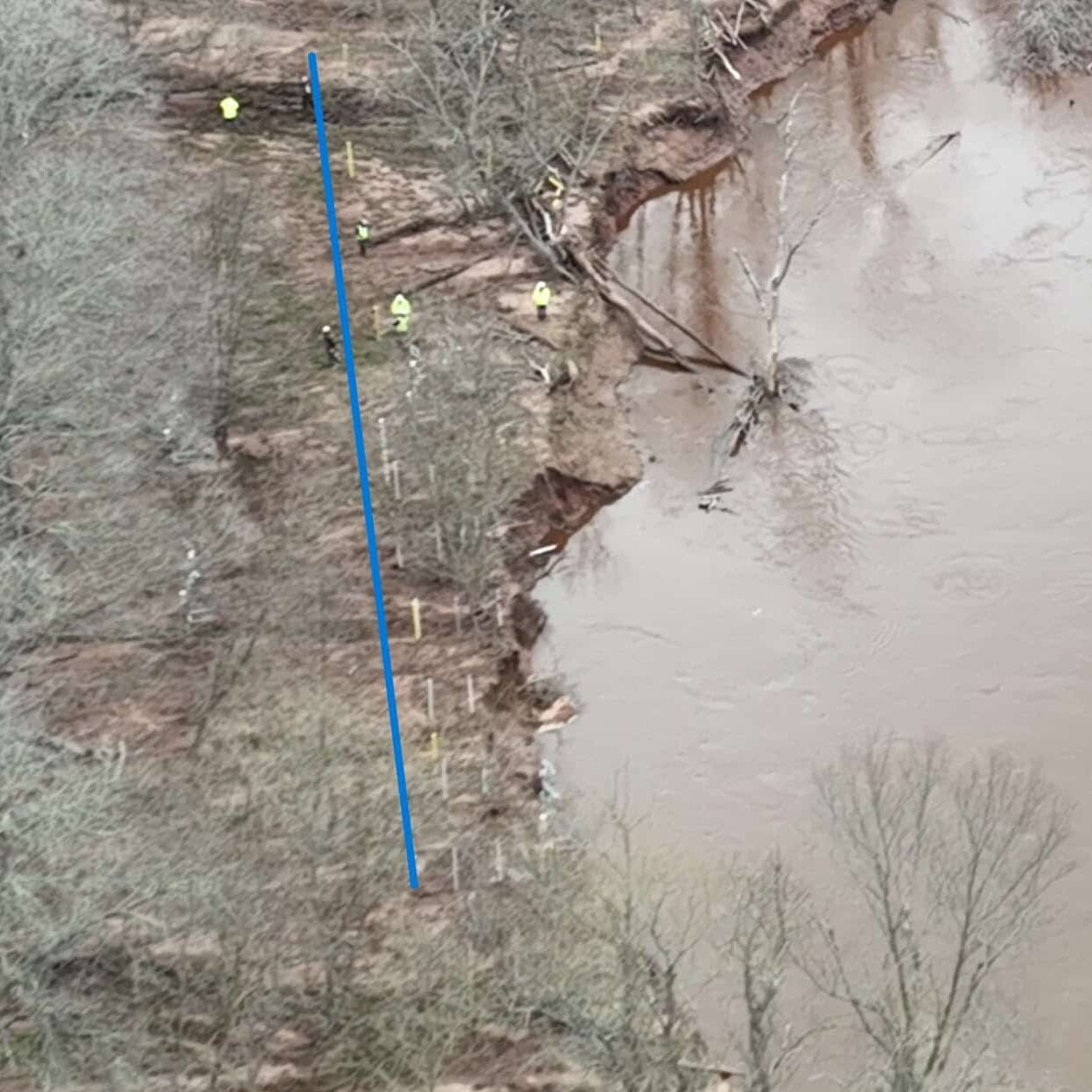Original Source: Honor the Earth
May 25, 2023
“At this moment, just one more storm could expose the oil pipeline to the river’s current, and we could experience a release of oil akin to what happened in the Yellowstone River in 2011 or the Arkansas River in 2013.” – Mike Wiggins Jr., Bad River Tribal Chair
The Bad River Band of Lake Superior Chippewa and allies across the Great Lakes are calling on us to help protect drinking water, wild rice, fisheries, and cultural survival.
The Line 5 pipeline is a few yards from imminent catastrophe at the Bad River Reservation in northern Wisconsin. Springtime flooding and erosion have caused the Bad River to come within 11 feet of the pipeline (down from 320 feet in in 1963). Over one month, more than half the remaining riverbank has disappeared. The next rainfall event could cause a “guillotine rupture” – a vertical break causing oil to gush from both sides, poisoning Mashkiiziibii (Bad River) and Gichigami (Lake Superior).
“I can’t overstress how devastating a spill in the watershed would be,” says Naomi Tillison, Director of the Bad River Mashkiiziibii Natural Resources Department. “The Bad River hatchery is the largest producer of walleye fingerlings in Lake Superior. If the waters that our hatcheries and wild rice beds rely on were contaminated with oil, not only would our supply of food, water and medicines be depleted, our coastal wetlands would be devastated and all of the businesses and people in the region who depend on our fisheries would suffer.”
Wisconsin’s Western U.S. District Court found Enbridge has been trespassing on these Bad River Reservation lands since 2013. Many Tribes along the line and the state of Michigan are calling for immediate shutdown.
Built 70 years ago with an engineered lifespan of 50 years, the expired Line 5 pumps up to 540,000 barrels of petroleum per day from western to eastern Canada, cutting through Tribal territories in Wisconsin and Michigan and running beneath the Straits of Mackinac. Line 5 also threatens to rupture at any moment into Lakes Michigan and Huron, which provide drinking water for millions of people.
In 2010, Enbridge was responsible for the largest inland oil spill in U.S. history when Line 6B released nearly one million gallons of heavy crude oil into the Kalamazoo River, polluting more than 4,000 acres of land and closing the river to the public for years. The damage to Nottawaseppi cultural and treaty-protected practices are felt to this day.
During the months-long shutdown of Line 6B in 2010, there was no sizable impact on gas prices in the area. Similarly, the market would quickly adjust to a shutdown of Line 5. Enbridge’s own experts predict that a shutdown of Line 5 would cause gasoline prices to rise by less than 1 cent per gallon in Michigan and Wisconsin.
In comparison, the cleanup and remediation from a full-bore oil spill could amount to over a billion dollars. That price doesn’t include the irreversible cultural devastation to the Bad River Tribe, depressed property values, and impacts to local fishing and tourism that could last for generations.
The Biden Administration has the power to act and avert an oil disaster in the Great Lakes, which hold 84% of North America’s surface freshwater.
President Biden, take a stand now: Revoke the Presidential Permit for Line 5!
Share:
